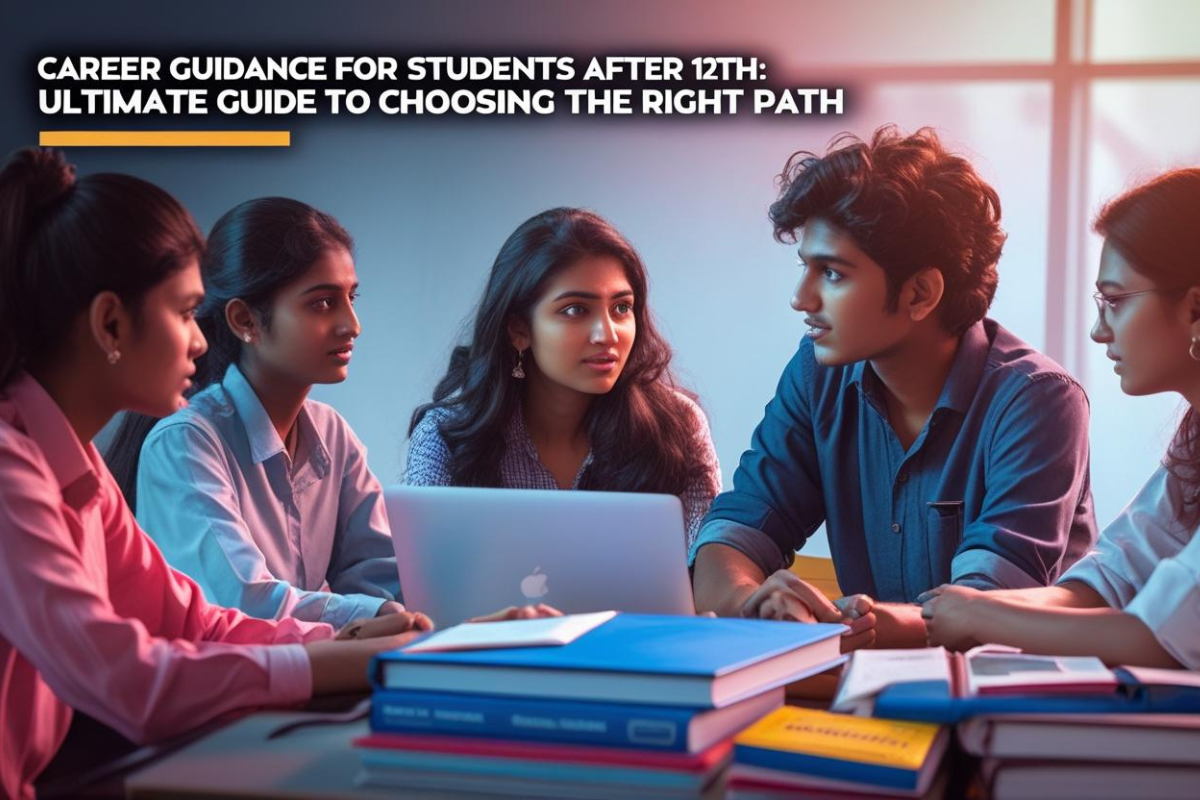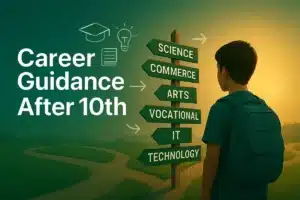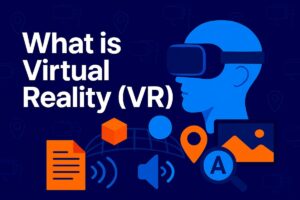Choosing the right career is one of the most important decisions in a student’s life. But let’s face it—it’s also one of the most confusing. With countless streams, evolving industries, and constant parental and peer pressure, how can students know which path to follow? This is where career guidance for students becomes not just helpful, but essential.
In this blog, we’ll provide a complete, easy-to-understand roadmap that helps students choose the right career. We’ll explore proven strategies, tools, and expert tips, so you can take confident steps toward a fulfilling future. Whether you’re in school or college, this guide is tailor-made to support you.
Why Career Guidance for Students Matters
Career guidance is more than just choosing a profession. It is a systematic approach to self-discovery, planning, and achieving long-term goals.
Benefits of Early Career and Guidance Counselling
- Clarity on Career Options: Know what’s available beyond the typical doctor-engineer-lawyer triangle.
- Personalized Path: Choose based on your strengths, interests, and passion.
- Reduces Confusion: Career counseling for students helps narrow down choices.
- Avoids Costly Mistakes: Saves time, money, and emotional stress.
- Builds Confidence: Helps students make informed, confident decisions.
Real-Life Example:
Anjali, a 12th-grade student, loved biology but wasn’t sure if MBBS was the right path. Through career counseling and psychometric testing, she discovered her aptitude for biotechnology. She is now thriving in her BSc program and plans to work in genetic research.
Key Elements of Effective Career Guidance for Students
1. Self-Assessment
Understanding oneself is the first step in any guidance and career counseling process.
- Interest Inventories (What you love doing)
- Aptitude Tests (What you’re naturally good at)
- Personality Tests (Who you are and how you work best)
Tip: Tools like MBTI, Holland Code, or DMIT can be helpful.
2. Exploring Career Options
Once you know yourself, explore what’s out there.
| Field | Popular Career Options |
| Science | Doctor, Biotech Engineer, Data Analyst |
| Commerce | CA, Investment Banker, Digital Marketer |
| Arts/Humanities | Journalist, Psychologist, UX Designer |
| Vocational | Chef, Animation Expert, Fashion Designer |
3. Matching Strengths with Market Demand
Choose a career not only based on passion but also practicality.
- Is the field growing?
- What are the salary prospects?
- Can you upskill later on?
How to Find Career Counseling for Students
Offline Options
- School Counselors
- Private Career Guidance Centers
- Career Fairs and Workshops
Online Options
- Mindler
- CareerGuide
- Univariety
- iDreamCareer
Many platforms offer personalized guidance, live counseling, and career exploration tests.
Steps Students Should Take for Effective Career Planning
Step 1: Know Yourself
Use assessments to understand your aptitude, interest, and personality.
Step 2: Research Career Paths
Watch YouTube videos, read blogs, or connect with professionals on LinkedIn.
Step 3: Seek Career and Guidance Counselling
Get expert advice to avoid common mistakes and map your career journey.
Step 4: Build Skills
Use online platforms like Coursera, Udemy, or Skillshare to learn new skills.
Step 5: Create an Action Plan
Plan short-term (1 year), medium-term (3 years), and long-term goals (5+ years).
Career Counseling for Students After 10th and 12th
These are two of the most critical phases for seeking guidance.
After 10th Grade
- Choose the right stream (Science, Commerce, Humanities)
- Understand what subjects align with your future goals
After 12th Grade
- Pick a career path or professional course
- Consider entrance exams, admission criteria, and future scope
Common Mistakes Students Make (And How to Avoid Them)
- Following the crowd: Choose based on what YOU want
- Ignoring skill-building: Start early with internships or online courses
- Not asking for help: Professional guidance can change your life
Bonus: Career Guidance Tools for Students
| Tool | Purpose |
| MBTI | Personality profiling |
| Career Aptitude Tests | Matches career with skills |
| LinkedIn Learning | Courses & professional development |
| Coursera/Udemy | Upskilling |
FAQs about Career Guidance for Students
1. What is the importance of career guidance for students?
Career guidance for students helps them make informed career decisions based on their interests, strengths, and market trends.
2. When should students seek career and guidance counselling?
Ideally, after class 9 or 10, but it can be helpful at any stage of academic life.
3. How can online platforms help with career counseling for students?
Online platforms offer assessments, expert counseling, and career planning tools accessible anytime, anywhere.
4. Is guidance and career counseling necessary if I already know my interest?
Yes, because it aligns your interest with opportunities, skill development, and industry demands.
5. Can career counseling for students help with entrance exam preparation?
While not a coaching service, counselors can recommend which exams are aligned with your goals and how to prepare strategically.
Conclusion
Choosing a career is not a one-time decision, it’s a journey of discovery, growth, and adaptation. The right career guidance for students can make all the difference in building a life that’s successful, fulfilling, and meaningful. Take that first step today—explore, ask, assess, and act.
If you found this guide helpful, share it with your friends, drop your thoughts in the comments, or suggest a topic you want us to cover next!


